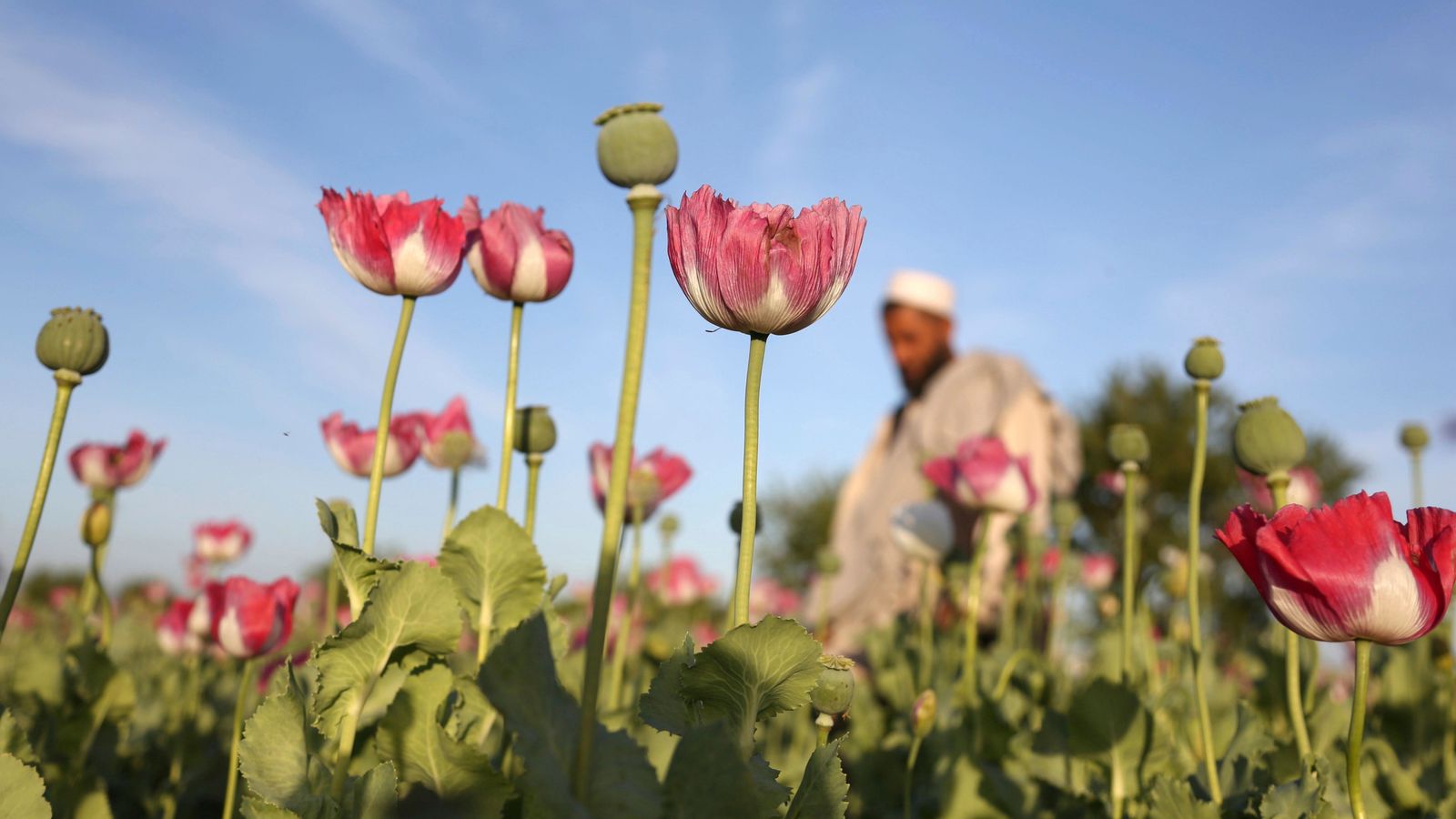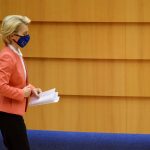Poppy growing has been banned by the Taliban in Afghanistan, the world’s biggest opium producer.
Drug crops will be destroyed and offenders punished, the militant group’s leadership has ruled.
A crackdown on narcotics has been a major demand of the international community of the Taliban, which reclaimed power in Afghanistan last August, following the US-led withdrawal of troops.
The group is seeking formal recognition in order to ease sanctions that are severely hampering banking, business and development.
The order announced at a news conference by the Ministry of Interior in Kabul said: “As per the decree of the supreme leader of the Islamic Emirate of Afghanistan, all Afghans are informed that from now on, cultivation of poppy has been strictly prohibited across the country.
“If anyone violates the decree, the crop will be destroyed immediately and the violator will be treated according to the Sharia law.”
The production, use or transportation of other drugs has also been outlawed.
Taliban close girls’ secondary schools in Afghanistan days after announcing they would reopen
Top Foreign Office civil servant Sir Philip Barton responds to whistleblower’s accusation that he misled MPs over Afghanistan evacuation
MPs criticise UK response to Afghanistan crisis – as fears expressed same could happen in Ukraine
The Taliban banned poppy growing towards the end of their last rule in 2000 as they sought international legitimacy, but backed down in the face of a popular backlash.
Afghanistan’s opium production was worth up to $2.7bn (£2bn), according to a UK report in 2021, more than 7% of the country’s GDP.
The same report said “illicit drug supply chains outside Afghanistan” made much more.
Nearly 80% of heroin produced from Afghan opium production reaches Europe through Central Asia and Pakistan.
Washington spent more than $8bn (£6.1bn) trying to eradicate poppy production in Afghanistan during its nearly 20-year intervention.
The ban comes as the country faces a humanitarian crisis and its economy teeters.
The country’s dire situation has prompted residents of southeastern provinces to grow the illicit crop that could bring them faster and higher returns than legal harvests such as wheat.
Please use Chrome browser for a more accessible video player
Poppies are the main source of income for millions of small farmers and day labourers can earn upwards of $300 (£229) a month harvesting them and extracting the opium, which is used to make heroin.
They are often used as a form of banking among Afghanistan’s poorest who use the promise of the next year’s harvest to buy staples such as flour, sugar, cooking oil and heating oil.
Prohibiting poppy production will further impoverish Afghanistan’s poorest citizens.
Taliban sources have said tough resistance is expected against the ban from some within the group.
Follow the Daily podcast on Apple Podcasts, Google Podcasts, Spotify, Spreaker
A farmer in Helmand who spoke on condition of anonymity to the Reuters news agency said in recent weeks prices of poppy had already more than doubled on rumours the Taliban would ban its cultivation.
But he added that he needed to grow poppy to support his family.
“Other crops are just not profitable,” he said.






















